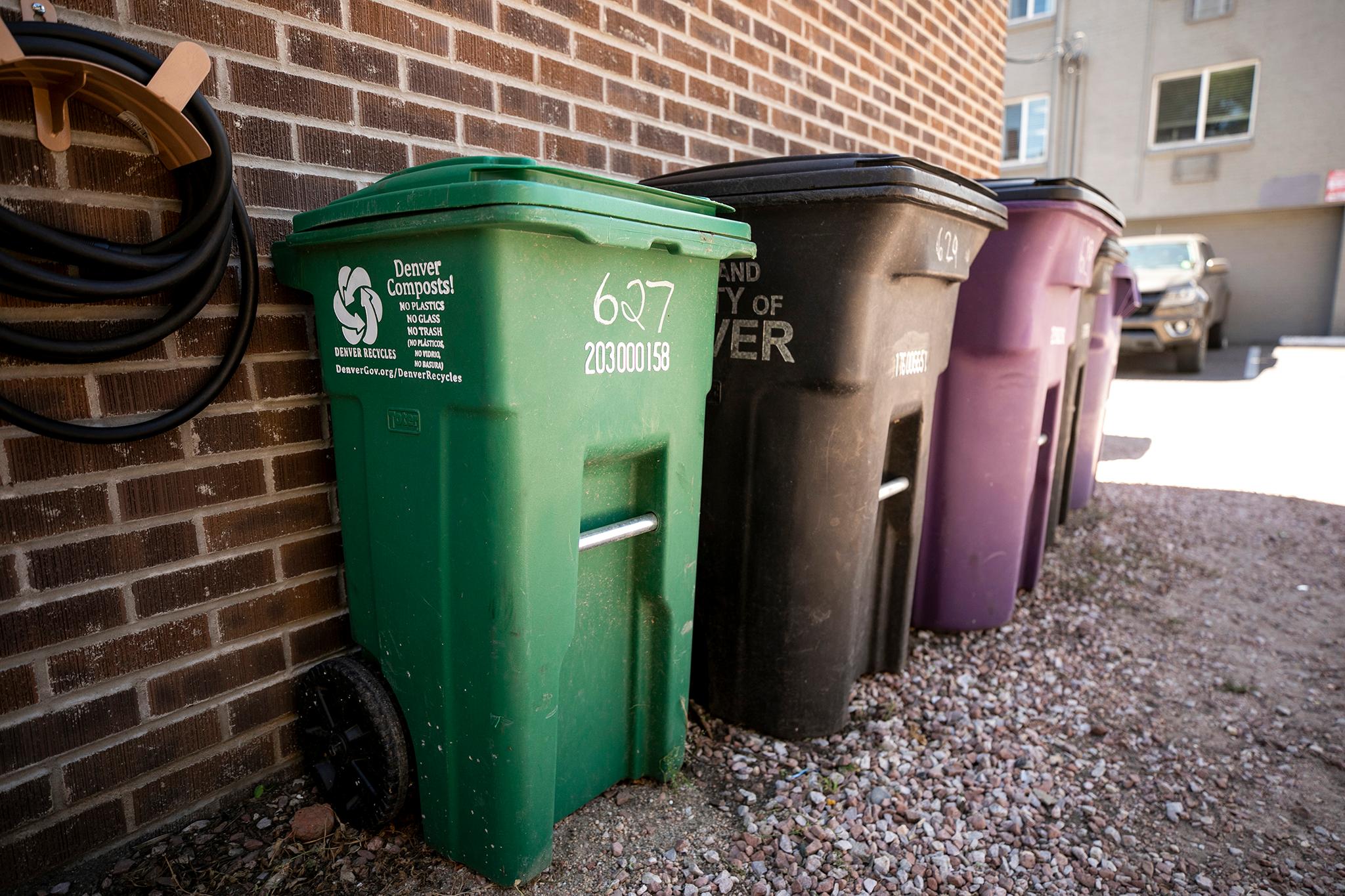It's been a slow rollout of Denver's new pay-as-you-throw trash program.
Pay-as-you-throw expands composting citywide, adds more frequent recycling pickup and charges residents based on the size of their trash bin.
City Council passed the climate policy in June of 2022, and it took effect in January of 2023. But it's taken over a year for the city to distribute compost bins across the city — an effort that is still ongoing.
Here are the neighborhoods next up for compost bins: Athmar Park, Auraria, Baker, Barnum, Barnum West, Civic Center, Lincoln Park, Sun Valley, Union Station, Valderde, Villa Park and Westwood, as well as parts of the Central Business District and West Colfax.
Residents of single-family homes and apartment buildings with up to seven units should keep an eye out for a letter in the mail explaining the service and giving residents a chance to request their compost bin size. Residents will also receive a pail for the kitchen to keep food scraps and a compost guide.
Why are some neighborhoods getting compost bins earlier than others?
The city is prioritizing distributing compost bins to parts of the city with the lowest trash diversion rates.
That's because pay-as-your-throw aims to incentivize more compost and recycling and less trash. Residents who haven't received compost bins yet will get a credit on their trash pickup invoice.
Denver will not finish distributing compost bins until 2025. Since the program began in 2023, trash diversion rates have increased by 3 percent to 26 percent of waste.
Here's everything you need to know about the program, plus our comprehensive guide to composting.














